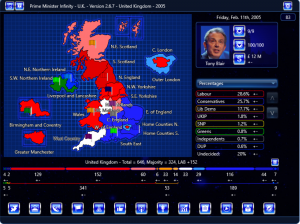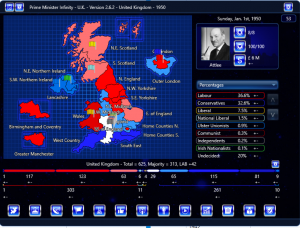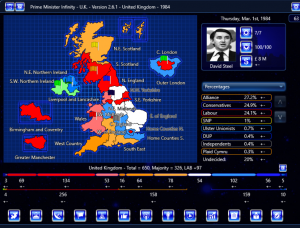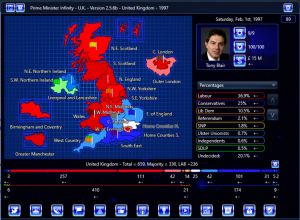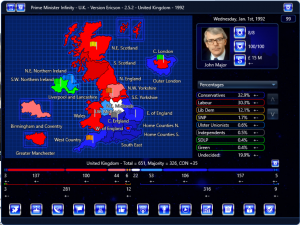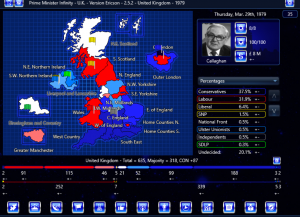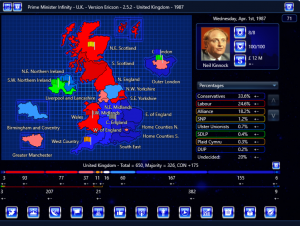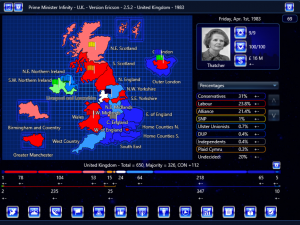
After a turbulent few years in British politics, Margaret Thatcher looks set to secure a second term with an increased number of MPs. Meanwhile, the opposition to her is more divided than it has been for a generation. Labour has moved to the left under the leadership of Michael Foot, and has faced years of turmoil that has sunk its standing in the polls. Can they fend off a challenge from the newly formed SDP-Liberal Alliance to remain the main opposition, and can either of them prevent the Tories from winning a majority?
This is my first scenario that I have published, so feedback would be much appreciated.
v1.1: Minor update to amend candidate name and incumbency errors
United Kingdom – 1983 v1.1
United Kingdom – 1983 v1.0
Notes:
Parties: All the parties from the original game with logos and leaders changed for 1983. I have also added National Front, Ecology, and the Workers Party of Northern Ireland. The SDP-Liberal Alliance is treated as one party for the purposes of the game.
Leaders: All the 1983 Party Leaders complete with photos and stats. Thanks to GOP Progressive & Ed Gaffney on this one, whose PMF scenario provided much of the resources for the more obscure parties. I have set David Steel to the default Alliance leader, seeing as he led the campaign, but as PM designate, Jenkins could equally be used as well, so he is an option too. The three main parties also have a set of alternative leaders:
Tories: Whitelaw, Howe, and Pym
Labour: Healey, Benn, Shore, Callaghan
Alliance: Jenkins, Owen, Williams
All constituencies have been edited to reflect 1983 boundaries, and support levels amended to reflect the polls at the time of the campaign start. I believe I have done a fairly thorough job on this one, but if you come across a constituency which shouldn’t be there, or any other error, feel free to notify me and I will update the scenario to change it.
Issues and there importance have been changed, there are no debates as was the case in the campaign in real life. I deleted the Independent as an endorser, seeing as it did not exist back then, and to make things more realistic, I have amended starting scores to be higher for the parties that papers are generally very likely to endorse. Now for example, it will be much harder for Labour to win the endorsement of the Telegraph than it was in the original game.
I have also added a couple of events that took place during the campaign period. Though the election was called on the 9th May, I thought that a month long campaign is often not as enjoyable as a longer one. Therefore, the player has a choice between starting on the 9th May, or April 1st.

